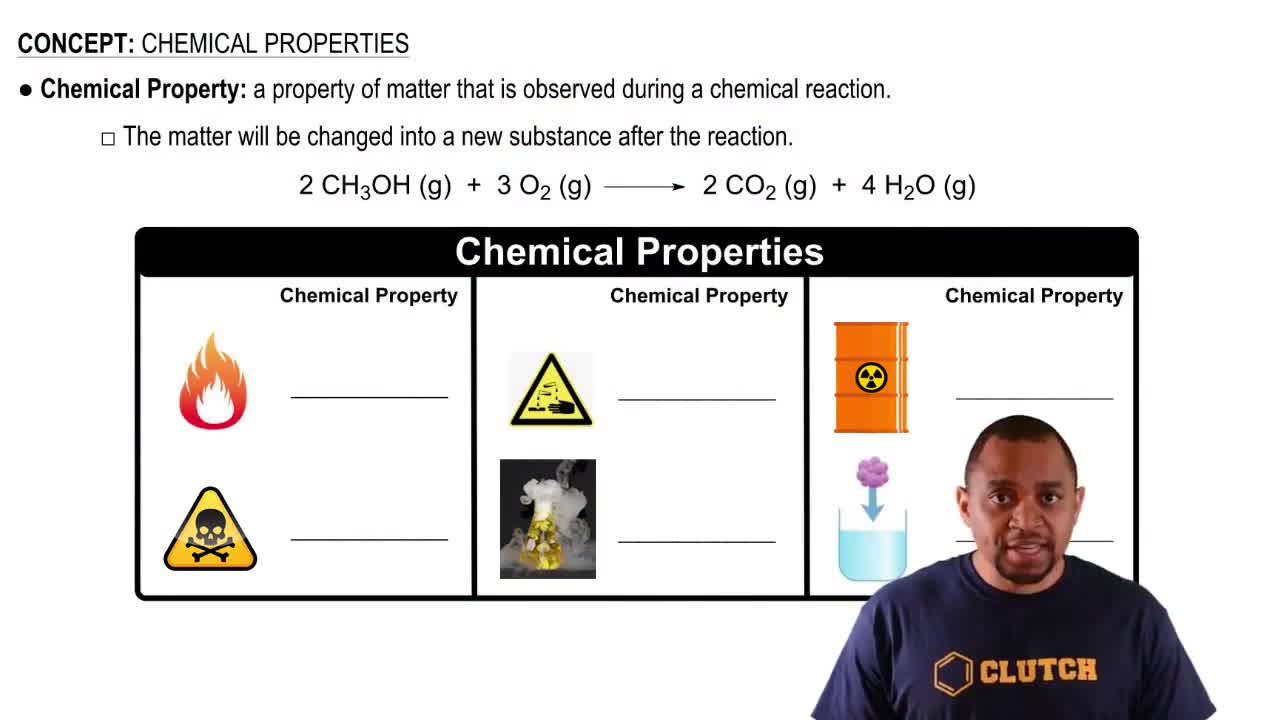Determine whether or not each metal, if coated onto iron, would prevent the corrosion of iron. c. Mn
Ch.20 - Electrochemistry
Chapter 20, Problem 92c
Determine whether or not each metal, if coated onto iron, would prevent the corrosion of iron. c. Cu
 Verified step by step guidance
Verified step by step guidance1
Understand the concept of galvanic corrosion: When two different metals are in contact in the presence of an electrolyte, the more reactive metal (anode) will corrode preferentially to the less reactive metal (cathode).
Identify the position of copper (Cu) and iron (Fe) in the electrochemical series: Copper is less reactive than iron, meaning it is lower in the series and acts as a cathode.
Determine the role of copper when coated on iron: Since copper is less reactive, it will not corrode in preference to iron. Instead, iron will act as the anode and corrode faster.
Consider the implications of coating iron with copper: Coating iron with a less reactive metal like copper does not prevent corrosion; it may actually accelerate the corrosion of iron.
Conclude that copper coating does not protect iron from corrosion: Since copper is less reactive, it does not sacrifice itself to protect iron, leading to the conclusion that copper coating is not effective in preventing iron corrosion.

Verified Solution
Video duration:
5mWas this helpful?
Key Concepts
Here are the essential concepts you must grasp in order to answer the question correctly.
Corrosion
Corrosion is the process by which metals deteriorate due to chemical reactions with their environment, often involving oxidation. In the case of iron, it typically forms rust (iron oxide) when exposed to moisture and oxygen. Understanding corrosion is essential to determine how different metals can protect or exacerbate the degradation of iron.
Recommended video:
Guided course

Chemical Properties
Galvanic Series
The galvanic series is a list of metals and alloys arranged according to their electrochemical potential in a specific environment. Metals higher in the series are more noble and less likely to corrode, while those lower are more reactive. Coating iron with a metal that is higher in the galvanic series can provide cathodic protection, preventing iron from corroding.
Recommended video:
Guided course

The Galvanic Cell
Cathodic Protection
Cathodic protection is a technique used to prevent corrosion by making the metal to be protected the cathode of an electrochemical cell. This can be achieved by applying a more reactive metal (anode) that will corrode instead of the iron. In the case of copper (Cu), it is less reactive than iron, meaning it would not provide effective cathodic protection and could actually lead to increased corrosion of iron.
Recommended video:
Guided course

Lewis Dot Structures: Sigma & Pi Bonds
Related Practice
Textbook Question
283
views
Textbook Question
Determine whether or not each metal, if coated onto iron, would prevent the corrosion of iron. a. Mg
335
views
Textbook Question
Determine whether or not each metal, if coated onto iron, would prevent the corrosion of iron. b. Cr
658
views
Textbook Question
Consider the electrolytic cell: b. Indicate the direction of electron flow.
369
views
Textbook Question
Draw an electrolytic cell in which Mn2+ is reduced to Mn and Sn is oxidized to Sn2+. Label the anode and cathode, indicate the direction of electron flow, and write an equation for the half-reaction occurring at each electrode. What minimum voltage is necessary to drive the reaction?
1088
views
Textbook Question
Write equations for the half-reactions that occur in the electrolysis of molten potassium bromide.
1527
views
1
rank
